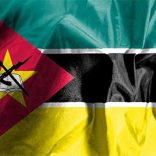Mozambique, World Bank partnership gains momentum as President Chapo meets Ajay Banga in ...
Mozambique: Central bank’s advances and loans to the State increased by 52% in 2024

File photo: Lusa
Loans and advances by the Bank of Mozambique to the state increased by 52% in 2024, to more than 101,329 million meticais (€1,341 million), according to financial statements of the Mozambican central bank, compared to 66,430 million meticais (€880 million) at the end of 2023.
The report adds that, of this balance, in December last year, around 12,767 million meticais (€169.1 million) were granted at an annual interest rate of 3%.
The document recalls that, according to the legislation governing the Bank of Mozambique, the institution may “grant the state an interest-free credit annually in the form of a current account, in national currency, up to a maximum amount of 10% of the ordinary revenues of the General State Budget, collected in the penultimate financial year”.
It also stresses that “withdrawals by the State from the same account will be made solely to represent the budget revenues of the respective financial year and the credit must be settled by the last day of the economic year in which it was opened, and, if this is not the case, the balance will bear interest at the discount rate” of the Bank of Mozambique.
Mozambique’s sovereign risk remained at a “severe level” in 2024, according to a report by the central bank reported on by Lusa this week. The report predicts that it will remain at this level, given the “pressure” of public debt. “In 2024, sovereign risk remained at a severe level. The prevalence of sovereign risk at a severe level is explained by the maintenance of the ratio of government credit to total credit and the ratio of public debt to GDP [Gross Domestic Product] at high levels,” the report states.
Sovereign risk refers to the risk that a government will not be able to meet its financial obligations.
According to the document, Mozambique closed 2024 with a total public debt of over US$16,328 million (€13,931 million), compared to US$15,202 million (€12,970 million) in 2023.
“Regarding sovereign risk, it is expected to remain at a severe level, due to the pressure on domestic public debt, which continues to worsen,” the report, points out.
Finance Minister Carla Loveira said on June 16 that Mozambique’s economic and financial scenario remained “challenging”, acknowledging the impacts of post-election social tension in the first quarter of the year.
Speaking at a Bank of Mozambique event in Maputo, the minister recalled that, “in recent years”, the country’s macroeconomic management had faced “challenges arising from external and internal shocks, which have profoundly affected” the economy, such as terrorism in Cabo Delgado, extreme weather events and “violent demonstrations” following the general elections of October 9.
These culminated in the “destruction of public and private infrastructure, which led to a slowdown in economic growth of 3.6 percentage points to 1.9%, against the 5.5% projected in the PESOE [Economic and Social Plan and State Budget] for that year”.
“This situation was reflected in the first quarter of 2025, with GDP showing a negative variation of 3.9%, when compared to the same period in 2024, influenced by negative variations in the secondary sector of 16.2%, followed by the tertiary sector with a negative variation of 8%,” Minister Loveira added.
“This shows that the context remains challenging and it was in this context that the Assembly of the Republic approved the PESOE for 2025 (…), [which] points to fiscal consolidation as the primary objective to balance the state’s accounts. In these terms, policy measures were approved to increase efficiency in revenue collection, stabilize the level of public debt of the wage bill, in order to reduce the primary deficit, creating space for productive investment,” the minister also highlighted at the time.












Leave a Reply
Be the First to Comment!
You must be logged in to post a comment.
You must be logged in to post a comment.